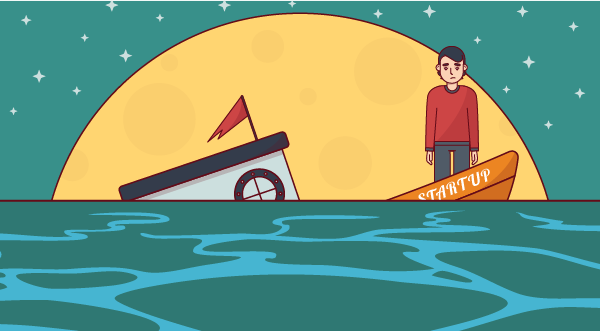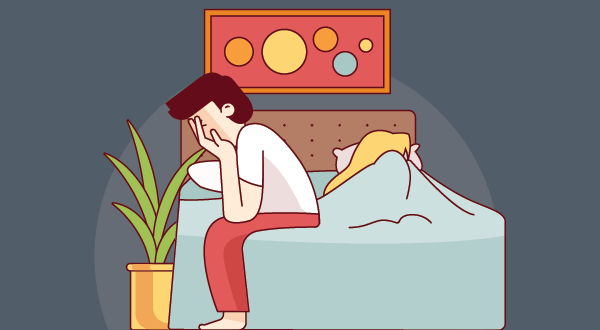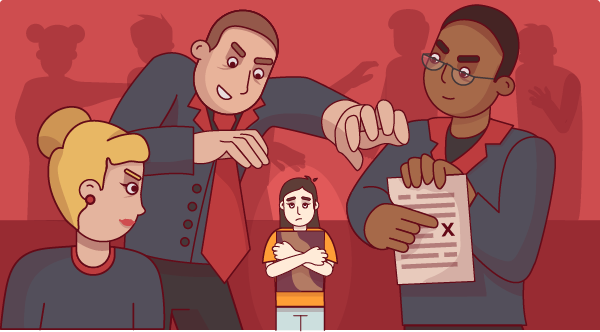Wil Schroter
If our startup sinks, everyone else gets a life raft — but Founders go down with the ship.
There are a million stories about how other entrepreneurs were able to scale successfully, but what we rarely hear about is what happens when things aren't so rosy, which is ironic since most startups don't have that picturesque outcome AND this is a great learning opportunity.
The reality is most Founders find themselves inextricably tied to their startup baby at a very personal financial level.
This means when things go sideways, it's not just the startup that's in jeopardy — it's our personal lives that get pulled into the mucky-muck. And if this is your first startup — this may not be apparent at all.
Most Big, Successful Businesses of Today Were Once Startups
Most big businesses of today were once small, scrappy, and innovative startups.
We all know the feeling in the beginning when every day is a new challenge and every obstacle is an opportunity to learn more. That's the same energy that drives these companies to be successful.
But what about when things start to change at companies? When you've got a company full of employees and customers and responsibilities, what happens when startup failure turns from a nightmare to an actual reality?
The truth is, it absolutely sucks. There is no way to sugarcoat it or make it better (I know this from experience).
But, the kicker is that it isn't just the startup failure that hits so hard, it's the "founder failure" that stays with us long after the startup doors close.
And what makes things worse is with every lingering liability, as Founders, we have a constant (and expensive) reminder of that founder failure that no one else ever sees. It's in every residual check we write, and every bill that is added to the stack.

Why Startups Fail
While there isn't one defining rhyme or reason and every situation has different variables, startups often fail because we get ahead of ourselves by leaping ahead with plans without proper planning, or not paying attention to important metrics.
Entrepreneurs tend to have a fixed mindset with their strategies — and focus their energy on one of the company's operations over the others (like technology, sales, or raising funds in silicon valley) without taking time to make the right steps to create a steady path forward.
Are Business Failure and Founder Failure the Same Thing?
Not necessarily. You see, when a business fails, everyone sees the doors close (metaphorically and literally), the website shut down, and the employees are back in the job market.
The key difference between a company failure and a founder failure is the internal struggle and lasting reminders of their dream crashing right before them.
Founder failure is more internal, and never really leaves you — especially when there are still bills to be paid! But most people don't know (or even think about) this side of the entrepreneurial journey.

It's Not Business, it's Personal
What gets easily overlooked by everyone else involved in our startup is how unlike them, we Founders often cannot extract ourselves from the dumpster fire that is our startup.
Unlike everyone else, we've likely signed at a personal level to all kinds of liabilities we barely thought twice about at the time. That office lease we just had to have? We personally owe the next 5 years of payments (check the fine print).
That Amex card we were enjoying the points with? That balance is owed by us now, not the company — and it's due now.
Everyone else has an inherent firewall. Our team can go get other jobs, our investors can write off the investment. But for the Founders, our woes don't end when our startup does.
Welcome to Personal Bankruptcy
Simply put, when we transfer the exponential costs of running a company back to personal liability, we're screwed.
Paying $5,000 per month for an office lease might have sounded like a good deal for a company, but when that payment is due by us personally as the Founders, it's game over because at this point the money is generally long gone.
An empty well in a thirsty world.
Oh, and did we mention we also have no income and no personal savings left at this point? Because that's kind of an issue too! How are we supposed to close this huge gap with no resources, and no more money?
Our only option to save ourselves is to file for personal bankruptcy to have any chance of fending off collectors from every corner.
Do you know who else has to do that? No one. Not the employees. Not the investors. Just us, alone in the world — unless we have some co-founders, and while misery loves company - it doesn't help failing companies.

Costly Wind Downs With No Money
To make matters worse, did we mention it costs money to wind down a company? Who pays that exactly? You guessed it — the Founder. Why? Because no one else is going to give up a single penny to help out — why would they?
So now we've got a startup that has no money to actually put itself officially out of business with a Founder that has no money to get themselves out of the liability.
If this sounds like an apocalyptic hellscape, it's because it is. This is the part of the Founder story they don't mention in the brochure and yet Founders like us deal with exactly this problem daily.
We have to protect ourselves as much as possible.
We may not be able to save our startup from failing but the more we realize we can protect ourselves personally from soul-crushing liability the better.
Let this be a reminder, my fellow Founders, that we need to plan for the good times, but we need to be ready to pay for the bad times.
In Case You Missed It
Many Startups Shut Down a Few Times Before Succeeding (podcast) Most startups are not overnight successes. In fact, many of them have to shut down (sometimes more than once) to build back up to the success they eventually achieve.
Startups Don’t Go Bankrupt — Founders Do. Startups don’t truly go bankrupt until their Founders go bankrupt. The problem is that Founders are often so focused on their startup’s finances that they overlook their own ability to stay afloat in the process.
How to be Resilient After Failing. Startups fail 90% of the time, so determined entrepreneurs know that failure is something they’ll have to confront regularly. Learning how to be resilient in the face of failure may not come naturally for all. Here’s where to start.
Find this article helpful?
This is just a small sample! Register to unlock our in-depth courses, hundreds of video courses, and a library of playbooks and articles to grow your startup fast. Let us Let us show you!
Submission confirms agreement to our Terms of Service and Privacy Policy.
Start a Membership to join the discussion.
Already a member? Login
As a founder that is still processing through this situation, the article and podcast were spot on.